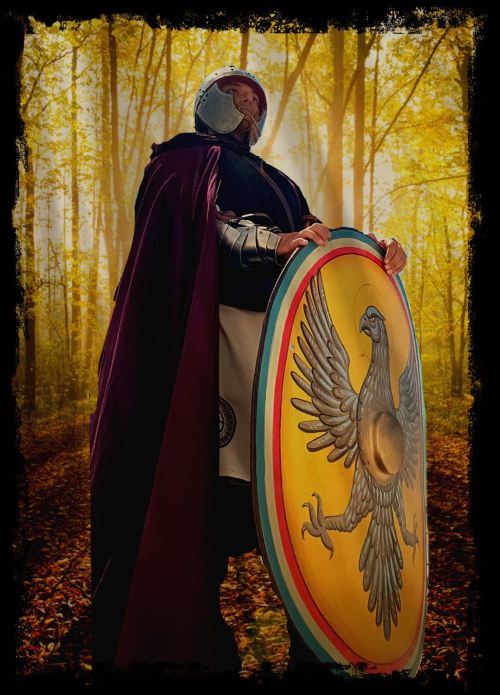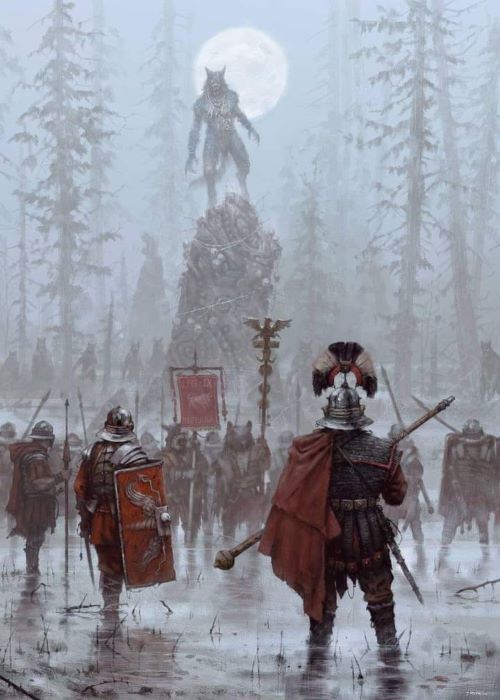Not content to rule half a Roman Empire, Justinian virtually bankrupted the state with endless wars and expensive building programs to recreate the "Glory" of an old, vanished united Empire.
By Procopius of Caesarea
500 - 554 AD
The Secret History
How he ruined the beauty and appearance of Constantinople and every other city, we shall now see.
First he determined to debase the standing of the lawyers. He deprived them of all court fees, by which they had formerly lived in comfort and elegance; and in consequence they lost caste and significance. And after he had confiscated the estates of the Senators and other prosperous people, as has been related, in Constantinople and all over the Roman Empire, there was little use for lawyers anyway; men no longer had anything worth mentioning to go to court about. So of all the many noted advocates, only a few were left; and they were despised and reduced to penury, reaping nothing but insult from their work.
Furthermore, he caused physicians and teachers of the liberal arts to be deprived of the necessities of life. For he stopped all their living subsidies, which former emperors had paid men of these professions from the public treasury.
Also all of the taxes which the municipalities had devoted to public use or entertainments, he transferred arbitrarily to the imperial treasury. No consideration was now given to any physician or teacher; no one dared pay any attention to public buildings; there were no public lights in any city, nor any entertainments for the citizens. For the theaters, hippodromes, and circuses, in which his wife had been born, bred and educated, were all discontinued. Later he even stopped the public spectacles in Constantinople, to avoid spending the usual State money on them, by which an almost incalculable number of people had got their livelihood. On these, individually and collectively, ruin and desuetude descended, and as if some cataclysm had fallen on them from Heaven, their happiness was slain. And no other subject was spoken of among men, at home or in public or in the churches, than their calamities, their sufferings, and their overwhelming by the latest misfortune. Such was the state of affairs in the cities.
Of what is left to tell, this is worth mentioning. Each year two Roman consuls were appointed: one at Rome, the other at Constantinople. And whoever was called to this honor was expected to spend more than twenty gold centenaries on the public; some of which came from the Consul's private purse, but most was furnished by the Emperor. This money was given to those others whom I have mentioned, but mostly to the poor and those employed in the theater; all of which was to the good of the city. But from the time Justinian came to power, these distributions were not made at the customary time; for sometimes a Consul remained in office for year after year, till finally people wearied of hoping for a new one, even in their dreams. As a result, universal poverty was the case, since the usual annual relief was no longer afforded to subjects; and in every way all that they had was taken from them by their ruler.
Now I think I have shown sufficiently how this destroyer devoured all the public moneys and robbed each member of the Senate, publicly and privately, of all his estates; and how by bringing false charges he confiscated the properties of everybody else who was reputed to be wealthy, I imagine I have adequately told: as in the case of the soldiers, subordinate officers, and the palace guard; the farmers and landowners; those whose business is in words; merchants, ship owners and sailors; mechanics, artisans, and market dealers; those whose livelihood is in the theater; and indeed everyone else, who was affected in turn by the damage done to these. And now let us see what he did to those in need of alms: the poor, the beggars, and the diseased; for what he did to the priests will be described later.
First, as I have said, he took control of all the shops, licensed monopolies of all the wares most necessary to life, and exacted a price of more than triple their worth from the citizens. And other details of what he did I would not even attempt to catalogue in an endless book, since they were simply uncountable.
He put a bitter and perpetual tax on the sale of bread, which the day laborers, the poor and the infirm could not help buying. From this source he demanded three centenaries a year, with the result that the bakers filled their loaves with shells and dust; for the Emperor had no scruples against profiting meanly from even this unholy adulteration. Those in charge of the markets, turning this trick to their private gain, with ease became very wealthy and reduced the poor to an unexpected famine even in prosperous times; since it was not permitted to bring in grain from other places, but all were forced to eat bread purchased in the city.
by Jean-Joseph Benjamin-Constant (1887)
One of the municipal aqueducts, which furnished not a small share of the city water, collapsed; but the rulers disregarded the matter and refused to repair it, though the constant crowds who had to use the wells were fairly stifling, and all the baths were shut down. On the other hand, he threw away great sums of money senselessly on buildings by the seashore and elsewhere, in all the suburbs, as if the palaces in which all the former emperors had been content to dwell were not enough for this pair. So it was not to save money, but to destroy his subjects, that he refused to rebuild the aqueduct; for no one in all history had ever been born among men more eager than Justinian to get hold of money, and then to throw it immediately away again. Through the two things left to them to drink and eat, water and bread, this Emperor injured those who were in the last extremes of poverty; making the one hard to procure at all, and the other too expensive to buy.
This he did not only to the poor in Constantinople, but to inhabitants elsewhere, as I shall now relate. When Theodoric captured Italy, he permitted the palace guard to remain in Rome, that some trace of the ancient State might be left; and he continued their daily pay. These soldiers were quite numerous, comprising the Silentiarii, the Domestics, and the Student Corps, who were soldiers only in name; their pay was just enough to live on; and Theodoric ordered that this should revert, on their deaths, to their children and families. Among the poor, who lived near the Church of St. Peter the Apostle, he distributed each year three thousand bushels of grain from the public granary; which they continued to receive until the arrival in Italy of Alexander the Scissors.
This man immediately decided to deprive them of all this. When Justinian, Emperor of the Romans, learned of this economy, he was greatly pleased, and favored Alexander more than ever. It was on his way here that Alexander treated the Greeks as follows. The fortress at Thermopylae had long been guarded by the neighboring farmers, who took turns watching the wall whenever an incursion of barbarians into the Peloponnese was anticipated.
But this Alexander, when he arrived there, claimed it was to the advantage of the Peloponnesians not to allow this pass to be kept by farmers. So he stationed two thousand soldiers there, to be paid not out of the imperial treasury, but by all the cities of Greece; and on this pretext, he diverted all their public and entertainment revenues to the general fund, saying that from it food would be bought for these soldiers. In consequence, after this, everywhere in Greece, including even Athens, no public buildings or any other benefit could be considered. But Justinian of course approved this action of the Scissors. And that is what happened here.
Then there is the matter of the poor in Alexandria. Among the lawyers there was one Hephaestus, who, on being made Governor of Alexandria, put a stop to civic sedition by intimidating the rioters, but reduced all the inhabitants to the utmost misery. For he immediately brought all the wares in the city under a monopoly, forbidding other merchants to sell anything, and himself became the only dealer and sole vendor of all wares: fixing prices as he pleased under his supreme power. By the consequent shortage in necessary provisions the city of Alexandria was greatly distressed, where formerly even the very poor had been able to live adequately; and the high price of bread pinched them most. For he alone bought up all the grain in Egypt, not allowing anyone else to purchase as much as a single bushel; and thus he controlled the supply and price of bread as he pleased. In this way he soon amassed unheard-of wealth, at the same time satisfying the greed of the Emperor. The people of Alexandria through fear of Hephaestus bore their suffering in silence; and the Emperor, awed by the abundance of money that continuously came to him from that quarter, was wonderfully delighted with his Governor.
This Hephaestus, planning to incur even greater favor of the Emperor, contrived the following additional scheme. When Diocletian became ruler of the Romans, he ordered a large quantity of grain to be given yearly to the poor in Alexandria. And the Alexandrians, distributing this among themselves at that time, had transmitted the right to receive this bounty to their descendants up to this time. But Hephaestus, depriving these needy ones of this charity, which amounted to two million bushels, diverted it to the imperial granary, and wrote to the Emperor that these men had been getting this dole unjustly and not in accordance with the interests of state. The Emperor, approving this action, was still fonder of him than before. But such Alexandrians whose hope of life had been in the distribution, in their present bitter distress felt the full benefit of his inhumanity.
Procopius of Caesarea: The Secret History



























